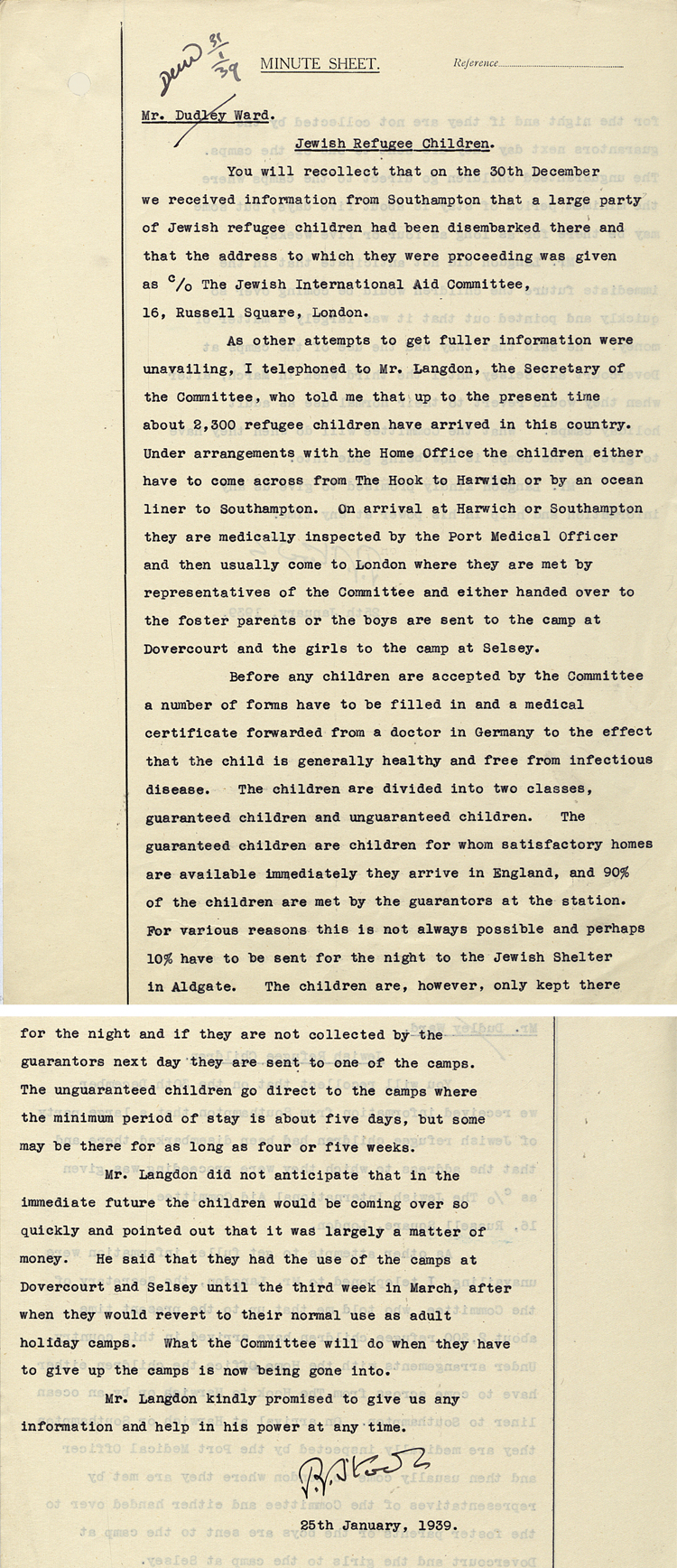Memo from Dr. Stock, a medical advisor to Dudley Ward at the Health Ministry, 25th January, 1939 (MH 55/704)
Transcript
MINUTE SHEET
Mr Dudley Ward.
Jewish Refugee Children.
You will recollect that on the 30th December we received information from Southampton that a large party of Jewish refugee children had been disembarked there and that the address to which they were proceeding was given as C/O The Jewish International Aid Committee, 16 Russell Square, London.
As other attempts to get fuller information were unavailing, I telephoned to Mr. Langdon, the Secretary of the Committee, who told me that up to the present time about 2,300 refugee children have arrived in this country. Under arrangements with the Home Office the children either have to come across from The Hook to Harwich or by an ocean liner to Southampton. On arrival at Harwich or Southampton they are medically inspected by the Port Medical Officer and then usually come to London where they are met by representatives of the Committee and either handed over to the foster parents or the boys are sent to the camp at Dovercourt and the girls to the camp at Selsey.
Before any children are accepted by the Committee a number of forms have to be filled in and a medical certificate forwarded from a doctor in Germany to the effect that the child is generally healthy and free from infectious disease. The children are divided into two classes, guaranteed children and unguaranteed children. The guaranteed children are children for whom satisfactory homes are available immediately they arrive in England, and 90% of the children are met by the guarantors at the station. For various reasons this is not always possible and perhaps 10% have to be sent for the night to the Jewish Shelter in Aldgate. The children are, however, only kept there for the night and if they are not collected by the guarantors next day they are sent to one of the camps. The unguaranteed children go direct to the camps where the minimum period of stay is about five days, but some may be there for as long as four or five weeks.
Mr. Langdon did not anticipate that in the immediate future the children would be coming over so quickly and pointed out that it was largely a matter of money. He said that they had the use of the camps at Dovercourt and Selsey until the third week in March, after when they would revert to their normal use as adult holiday camps. What the Committee will do when they have to give up the camps is now being gone into.
Mr Langdon kindly promised to give us any information and help in his power at any time.
Dr. R. Stock
25th January, 1939
